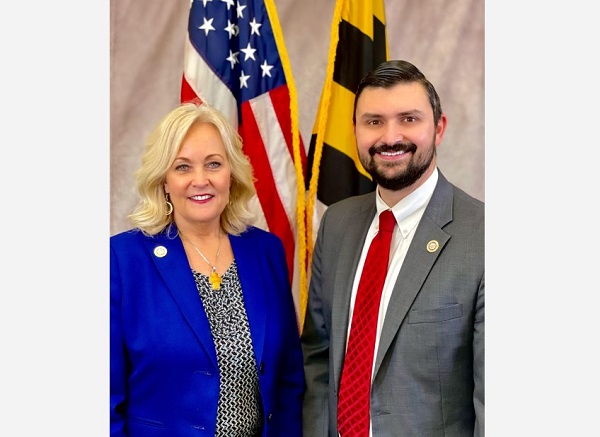UPDATE: The Baltimore County Council has passed the Adequate Public Facilities Ordinance.
Original story below…
The following is an editorial piece from Delegates Kathy Szeliga and Ryan Nawrocki.
Are you fed up with the relentless surge of unplanned development projects in Baltimore County, oblivious to the strain they put on our already overburdened schools, roads, and crumbling infrastructure like the Back River Wastewater Treatment Facility? It’s been four long years since the Baltimore County Adequate Public Facilities Ordinance (APFO) Task Force was established in August 2020, with the sole purpose of studying how to enhance the Baltimore County APFO in relation to development and adequate infrastructure needs, particularly those concerning public school facilities. Yet, we’re still waiting for a robust APFO in Baltimore County.
The APFO is a tool that the County should use to manage appropriate growth in our communities by establishing a process for analyzing proposed development projects and their impacts on public infrastructure. This infrastructure would include water, sewage line capacities, schools, and roads and should include other metrics like hospital bed capacity.
The Baltimore County APFO currently doesn’t mandate planned development or analytical studies as prerequisites for approving a development project. This is a grave oversight! Approval of a project should necessitate a thorough examination of its impact on the infrastructure. However, development projects are often greenlit without proper analysis of their potential effects on our traffic, road capacity, or sewage capacity at the Back River Wastewater Treatment Plant. Have you experienced the gridlock in White Marsh during rush hour? Yet, we’ve sanctioned hundreds of additional apartments in this area, completely disregarding this congestion. This is a perilous and reckless development practice.
Responsible project development starts with requiring Baltimore County to plan development through established processes such as analyzing schools and seats in a classroom. How many of our schools are over 100% capacity? How many more of our children should have to learn in trailers? This is just wrong and needs to stop.
These reforms are necessary for responsible development and are possible through the support of Councilmembers like David Marks and Wade Kach. They are being proposed just in time, as Governor Wes Moore has introduced a bill to build large low-income housing complexes in Baltimore County and other areas of the state without regard to whether adequate public facilities exist. This is a silly policy proposal to purposely build more housing without schools or roads. Not only will the Governor’s bill not truly address our housing needs, but it won’t fix the infrastructure crisis in Baltimore County.
These reforms are important to keep the infrastructure of Baltimore County strong and running smoothly. We must consider the Chesapeake Bay when we build in Baltimore County. The Back River Wastewater Treatment Plant has had decades of failings. We regularly continue to hear about raw sewage flowing into the bay. We also continue to have problems with midges, which are small insects, in eastern Baltimore County because of the issues at this facility. When will we consider the Chesapeake Bay’s health before we build more in Baltimore County?
A new APFO should also consider other aspects of infrastructure, such as emergency services and hospital capacity. A study last year showed that Maryland had the worst ER wait times in the country—we ranked 50th out of 50! Unfortunately, Franklin Square has some of the longest wait times in the state. That’s why it’s also important to consider emergency services and hospital capacity before we build even more new housing.
We will persist in our fight for these reforms in Baltimore County, demanding that safe and planned development become the norm in our communities. This is crucial for fostering healthy growth that our infrastructure can cope with. If we fail to act, we risk perpetuating irresponsible new development projects that could negatively impact our community and constituents. It’s time to act responsibly and put an end to this.
Do you value local journalism? Support NottinghamMD.com today.

